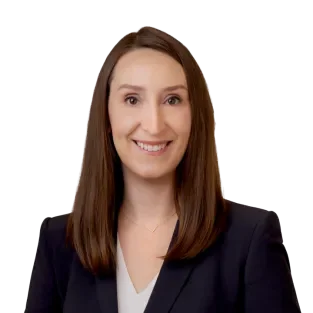ASAP
What COVID-19 Leave Is Left?
|
As we mark the third anniversary of COVID-19 compliance challenges in the United States, we are gifting employers a roundup of where things stand with COVID-19 (or related) leave requirements. We highlight laws that did not make it to 2023, along with requirements that expired earlier this year, will expire soon, or will not expire until the end of the year. Additionally, we note laws currently in effect for which there is either a “to be determined” expiration date or, in one instance, none at all. Finally, we wrap things up with a reminder about the permanent changes made to some of the unpaid state family leave laws, which may be triggered in the event of future public health emergencies.
Laws that Did Not Ring in the New Year
- New York City, NY – Child Paid Vaccine Leave. Although for some, New York City is the place to be on New Year’s Eve, its requirement that workers receive paid leave to obtain COVID vaccinations for children expired on December 31, 2022.
- Seattle, WA – Gig Worker Paid Sick and Safe Time Ordinance (GWPSSTO). On the other side of the country, in Seattle, WA, the GWPSSTO – a temporary law that provides paid sick leave for gig workers during COVID-19, no longer applied on January 1, 2023 to transportation network company drivers, because that’s when a new state law took effect that exclusively governs paid leave for these workers. Keep in mind, however, that the GWPSSTO remains in effect for food delivery network company workers. Moreover, per Seattle’s Office of Labor Standards, these workers continue to accrue, and can use, paid leave until April 30, 2023.
- California – Supplemental Paid Sick Leave. Further down the Pacific Coast, for most employees COVID-19 supplemental paid sick leave (SPSL) was no longer available under California’s statewide law; the only exception was for an employee already on a qualifying leave on or before December 31, 2022 that continued without interruption into 2023 – they could continue to use their SPSL benefit for that absence.
Laws that Recently Went Away
- California – COVID-19 Emergency Temporary Standards (ETS) Exclusion Pay. As of February 4, 2023, there were no longer exclusion pay requirements under the ETS; however, employers still might have obligations to exclude employees from the workplace for COVID-19-related reasons (with or without pay) under the ETS’ successor, the COVID-19 Prevention Non-Emergency Regulations (NER), and/or exclusion pay obligations for employers subject to Cal-OSHA’s Aerosol Transmissible Diseases (ATD) standard.
- City of Los Angeles, CA – Supplemental Paid Sick Leave. The COVID-19 local emergency in the City of Los Angeles, CA ended on February 1, 2023, which triggered the sunset clause in its supplemental paid sick leave ordinance, which expired two calendar weeks after local emergency expired.
- Long Beach, CA – Supplemental Paid Sick Leave. On February 21, 2023, Long Beach, CA approved a resolution to sunset its supplemental paid sick leave ordinance that same day.
Laws that Recently Went Away – But Could Return
- San Francisco, CA – Public Health Emergency Leave (PHEL). In San Francisco, CA, under a permanent law (the Public Health Emergency Leave Ordinance), covered employers must provide paid PHEL during a public health emergency, which includes a local or statewide health emergency related to any contagious, infectious, or communicable disease, declared by local or state health officials (e.g., COVID-19). February 28, 2023 was the end date for both the California and San Francisco COVID-19 public health emergencies, so PHEL for COVID-19-related reasons became unavailable once these PHEs expired. Keep in mind, however, that PHEL remains available during air quality emergencies for employees who primarily work outdoors and are a member of a vulnerable population. Additionally, due to the COVID PHE ending, San Francisco’s Office of Labor Standards Enforcement took offline guidance it had issued under a separate law, the Paid Sick Leave Ordinance (PSLO), along with emergency PSLO rules it had put in place during COVID concerning when employers could request documentation to substantiate a need for paid sick and safe leave.
Expiring Soon
- Los Angeles County, CA – Supplemental Paid Sick Leave and Paid Vaccine Leave. On February 28, 2023, the Los Angeles County, CA Board of Supervisors voted in favor of a motion to end its COVID-19 emergency effective March 31, 2023, which triggers sunset provisions in its ordinance requiring supplemental paid sick leave (in effect until two calendar weeks after COVID-19 emergency expires) and paid vaccine leave (in effect until 14 calendar days after COVID-19 emergency expires).
Summer Breaks?
- Colorado – Public Health Emergency Leave (PHEL). In Colorado, state law requires employers to provide paid sick and safe leave and PHEL during a public health emergency, which includes an epidemic caused by a novel and highly fatal infectious agent, for which an emergency is declared by a federal, state, or local public health agency or a disaster emergency is declared by the governor. The federal COVID-19 public health emergency will continue through May 11, 2023. If Colorado’s governor were to use that same day to end the state equivalent, employees could continue to use their PHEL until four weeks after the PHE expires—i.e., into the first half of June.
End of Year, End of Leave
- December 31, 2023 Expirations
- New York State – Paid Vaccine Leave. While this measure, which provides employees with four hours of paid leave per vaccine dose (including boosters) was originally scheduled to expire at the end of 2022, it was extended last summer and will now expire at the end of this year.
- Philadelphia, PA – Supplemental Paid Sick Leave
- January 1, 2024 Expirations
- Nevada – Paid Vaccine Leave
No End in Sight (So Keep an Eye Out)
- New York – Supplemental Paid Leave & COVID-19 Paid Family Leave. When New York legislators and the governor enacted supplemental paid sick leave and paid family leave requirements connected to COVID-19 in March 2020, they did not specify an end date nor did they include a “trigger provision” that details circumstances under which the obligation begins and ends. In a nutshell, the Empire State obligations still apply when there is a “a mandatory or precautionary order of quarantine or isolation issued by the state of New York, the department of health, local board of health, or any governmental entity duly authorized to issue such order due to COVID-19.” As a practical matter, New York now follows CDC guidelines, which no longer require precautionary quarantine for COVID-19 exposure, so this leave is only likely to arise where a person is isolating with an actual or suspected COVID-19 infection.
- Oakland, CA – Supplemental Paid Sick Leave. In Oakland, supplemental paid sick leave obligations will remain in place as long as there is a local COVID-19 emergency.
- Chicago & Cook County, IL – Vaccine Leave. In Chicago and Cook County, vaccine leave requirements will continue until public health officials determine the ordinances can be repealed. This leave must be paid if the employer mandates COVID-19 vaccines.
- Philadelphia, PA – Health Care Employee Provisions. Employers subject to Philadelphia’s health care employee provisions must continue to provide public health emergency leave “during a pandemic or epidemic affecting the City of Philadelphia declared to exist by the World Health Organization, the Centers for Disease Control and Prevention, or other recognized public interest health organization.”
- Nevada – Public Accommodations Facilities COVID-19 Paid Leave. In Nevada, covered public accommodations facilities in Clark County (which includes Las Vegas) and Washoe County (which includes Reno) must provide paid time off for employees experiencing COVID-19 symptoms or who have been exposed to COVID-19. Although there no longer is a COVID-19 public health emergency in the Silver State, this COVID paid leave requirement continues to apply because the law does not establish a hard end date and instead set (by today’s standards, at least) low thresholds for the obligation to remain: when the COVID-19 positive test rate in the at-issue county exceeds 5% or new cases in the county exceed 100 per 100,000 residents, in any rolling 14-day period in 90-day period preceding that day.
- Puerto Rico – Public Health Emergency Leave. In Puerto Rico, employers must continue to provide public health emergency leave until the emergency expires.
Don’t Forget About Unpaid Leave Laws!
We have focused on laws requiring employers to pay employees when they are absent from work for COVID-related reasons, but employers should not forget about laws on unpaid absences, as they might enter or re-enter the picture in the future.
- New Jersey Family Leave Act. For example, permanent changes to the New Jersey Family Leave Act currently apply, so employees will qualify for leave if they need to be absent from work for certain reasons due to a state of emergency or when indicated by a public health official, an epidemic of a communicable disease, a known or suspected exposure to the communicable disease, or efforts to prevent spread of a communicable disease. Additionally, for example, if employees need leave during an epidemic of a communicable disease, or because they were exposed to or are suspected to have been exposed to the communicable disease, or are taking efforts to prevent spread of a communicable disease, the law addresses qualifying certification issued by a school, place of care for children, public health authority, public official, or health care provider.
- Oregon Family Leave Act. Somewhat similarly, permanent changes to the Oregon Family Leave Act contain “trigger provisions” that apply when there is a public health emergency. Currently there is no qualifying public health emergency, as the COVID emergency expired at 12:01 a.m. on April 1, 2022, and, more recently, the emergency for respiratory syncytial virus (RSV) expired at 12:01 a.m. on March 6, 2023. But, if these, or other diseases, rise to the level of a public health emergency, expanded obligations could kick in.





